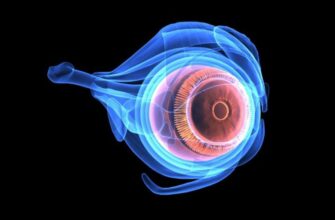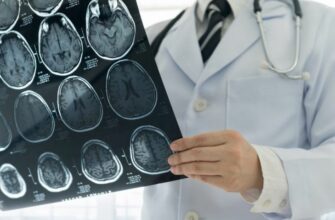A Transient Ischemic Attack is a blockage of the flow of blood to the brain that lasts temporarily. It is also referred to as a mini-stroke as the symptoms are the same. Unlike a full-fledged stroke, it does not cause any permanent damage but is still a serious condition. A TIA is typically the bodies way of alerting to other problems or more strokes to come. The attack is usually over in a matter of minutes, but being hospitalized is imperative. Diagnosing the problem and preventing a serious stroke are vital in the days following a TIA.
Symptoms
The symptoms of a transient ischemic attack are very similar if not identical to those of a life-threatening stroke. Numbness and paralysis of the face, arm, or down an entire side of the body can occur. Slurred speech, blurred vision, and sudden inability to understand others are also signs. Patients make experience complete blindness or double vision. A severe headache out of nowhere and loss of balance are other symptoms. The attacks come on suddenly and usually only last for a few minutes to an hour.
Risk Factors You Can’t Change
There are two types of risk factors when it comes to TIA’s, some you can control and some that you can’t. Things like aging, family history, and race are a few of the things that cannot be changed. Certain medical conditions like sickle cell disease can also lead to a higher chance of having a TIA. Women are also considered to be at greater risk of having a TIA or stroke. If you have already suffered a TIA or stroke, you are also at a higher risk of having another.
Risk Factors You Can Change
Several health factors can contribute to your chances of having a TIA or stroke. Diabetes, obesity, high blood pressure, and high cholesterol are all health conditions that can contribute to a TIA. Lifestyle choices like smoking cigarettes, drinking alcohol, and eating a diet high in fat are also risk factors. Lack of exercise, using certain illicit drugs, and the use of certain birth control pills are other ways to increase your chances of a TIA.
Treatments
TIA symptoms don’t last very long, but it is still something that needs to be medically evaluated. It is extremely important that the cause of the TIA be found in an effort to prevent further attacks or a serious stroke. Blood-thinning medications may be prescribed to help prevent clots, often a cause of a stroke. Other problems like clogged arteries and even too much stress can bring on an attack. Remember that they consider TIA’s to be a warning stroke for a reason. Most people who have a TIA will have a serious stroke shortly after. It is important to work closely with a medical team to prevent further issues.
Clogged Arteries
Clogged carotid arteries are one of the biggest causes of strokes and heart attacks. A TIA can happen as a result of an artery that is becoming blocked. A substance called plaque, and fatty tissues can attach to the artery because of poor diet and stress. Surgical intervention can be done to resolve the problem and prevent a more serious event from happening. The artery is literally cleaned using surgical instruments. In some cases a balloon type device is placed in the artery to keep blood flowing, this known as a stent.
Prevention
Several things can be done to prevent a TIA and stroke from happening. Eating a healthy diet and maintaining a healthy cholesterol level is a start. Furthermore, daily exercise can be of great benefit to help keep blood pressure and weight down. Sodium intake should be kept to a minimum and so should sugar. Diabetes that is not controlled can be a major cause of a stroke. Smoking to should be discontinued immediately and avoided after a TIA; it is a huge contributor. Keeping stress to a minimum is a must since an extreme increase in blood pressure can cause strokes.
Why are Strokes a Big Deal?
Strokes are a serious and life-threatening occurrence that should be avoided at all costs. Not only can they be fatal, but they can leave patients with a handful of serious side effects and damage. Mobility, speech, and ability to perform daily tasks can be quickly taken away with a stroke. Regaining function is possible. However, many are left with permanent damage. Rehabilitation can be lengthy and frustrating. It is a life-changing event and if it can be avoided, it should.
Are Women at Higher Risk?
Women are at higher risk of having a TIA or stroke than men and more women die from them each year. The reasons are because of conditions like pregnancy and history of pregnancy complications. Oral contraceptive pills have also been linked to increasing a woman’s risk of having a stroke. Certain hormone therapies have also been known to increase the chances. It is important not to smoke and make healthy lifestyle choices to lower the risk.
Adjusting After a TIA
It can be difficult to resume normal activities after experiencing a TIA. Many patients are afraid of having another attack or worse. It can be difficult to concentrate at work or uncomfortable doing certain things like driving. It is important to adhere to lifestyle changes and get help if you need support with stress and anxiety. There are support groups available to share experiences and help cope with getting back to normal.
No Permanent Damage
There is typically no lasting damage after experiencing a TIA. Some patients have reported having some residual symptoms for a few weeks after the attack. These include arm numbness, facial twitching, and memory problems. It has been reported that TIA does leave behind a certain amount of brain damage. Most patients can make a full recovery and maintain the same life activities following a TIA.

 Home
Home Health
Health Diet & Nutrition
Diet & Nutrition Living Well
Living Well More
More




















